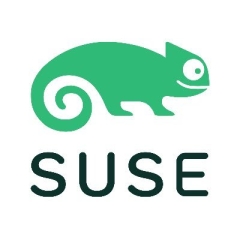I have been using SUSE and OpenSUSE since 1999 in various capacities.

I have been using SUSE and OpenSUSE since 1999 in various capacities.
There are several items which make this distribution a good product, however I think YaST is probably what I like most about it. YaST simplifies the server management of SUSE allowing for a centralized utility to control most of the server functions.
All distributions of Linux could use some improvement.
The only stability issues that I can recall encountering with SUSE would be with KDE. However, that is limited to just the desktop environment as I have not had stability issues with most server functions.
Not that I can recall.
I have never actually used the technical support. If I had an issue, then I would search the forums to find others that may have encountered similar issues.
I have used various different distributions of Linux. Currently, I am supporting Ubuntu and CentOS server deployments.
The initial setup for most modern Linux distributions is normally straightforward. Most of the common distributions use an ncurses or GUI install.
I would advise others to download the free or strictly open source versions, then test them in their environment before committing to a purchase. This will allow for testing suitability for applications that they want to run.
I have evaluated several different versions of Linux distributions over the years. It depends upon the planned use as to which platform will work best. I have tested RedHat, Debian, Ubuntu, SUSE, Linux Mint, SparkyLinux, SliTaz, Gentoo Linux, and several others.
Verify this product will do want you need it to do. As with all server class distributions, it can be setup with or without the GUI.
SuSe has an offline repository in DVD media. It's easy to use, although not as easy as Ubuntu is.
The administration tools are very useful.
We use it as a webserver: DNS Server and LDAP server.
The updating package:
We had trouble installing packages outside of the repository.
There were often conflicts in the existing version;
A depends on B, B depends on C, and etc...so we must upgrade to C and B before installing A.
Since 2010.
So far the use is very stable and we've never experienced any constraints.
No.
We do not pay for a subscription, so we do not get support. But out there, there are a lot of forums that can help us to solve the problem.
Previously, we used Microsoft products. The expensive license fees made us switch to open source.
Compared to Windows, use is more stable and scalable; easy to manage.
Initial setup is straightforward. They have a very good GUI/user interface.
We're not subscribed to any support. So far, without a subscription, there are no obstacles.
We've tried some Linux distro.
Limited internet connection made us look for distros which have repository on DVD.
Ubuntu may be the best choice for beginners if you have reliable internet access.
Look for products that have broad support and community, because it is very helpful when experiencing problems.
SUSE Linux Enterprise is an operating system for server workstations, desktop computers, and other platforms.
They should improve their educational portal. There should be a dedicated lab to learn about features similar to Red Hat's portal.
We have been using SUSE Linux Enterprise for seven months.
It is a stable platform.
The product's scalability is better than DevSecOps. We have enterprise and medium customers using it.
There are limitations in terms of getting administrative rights or comprehensive data support.
Neutral
The installation and registration process was complicated because of security settings. We didn't receive support services to tackle the difficulties. It requires four to five executives for maintenance.
I rate SUSE Linux Enterprise an eight out of ten.
SUSE Linux Enterprise is a critical component. We also use it with SUSE Rancher.
This solution is used to run the master node of Kubernetes and Rancher, which are co-dependent, and it does not run on Windows.
It is very powerful and different from Windows.
It is very simple to use.
You don't have to click, you just enter the commands.
It's a flexible solution.
I would like to see GUI improved, it could be more user-friendly.
I have been using SUSE Linux Enterprise for seven months.
SUSE Linux Enterprise is a stable product.
Technical support is very strong. Many resources can be found on the internet.
They offer enterprise-level support, similar to Red Hat and SUSE.
We are satisfied with the technical support.
If you are a technical person, the setup is easy, but if you are not, it can be quite complex.
Anyone can use Linux because it is open-source. If you require technical assistance, you will have to pay for it.
I don't have a lot of experience with this solution, I have recently completed my MCA, as well as my internship.
I would rate SUSE Linux Enterprise a ten out of ten.

Although I would agree that Ubuntu is a good choice for beginners, I would not suggest using it in an enterprise environment. CentOS, fedora, or OpenSuse are better for learning enterprise level servers as I have found that most enterprise customers prefer RHEL or SLES over the debian based distros.